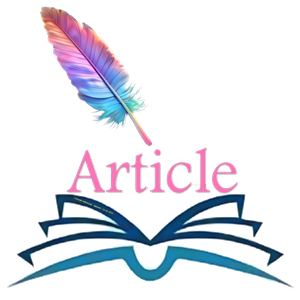Title: From Novel to Documentary Narrative: Reading in Nineteen Syrian Women tell by Samar Yazbec
Zoulikha HANTABLI
Faculty of Literature and Languages- University of Medea
Abstract
This article is based on a reading of the tragedy literature that resulted from the events of the Arab Spring through the book “Nineteen Women” by the Syrian writer Samar Yazbak, where we will focus on the content of the text and the template that the writer saw when she deviated from the writing path from the novel to the documentary narrative. We will also try to answer the questions imposed by this text, which is composed behind it, about the reason for its reluctance to narrate and leave the entire field to some narrators who lived the event and Aden to talk about it in freedom and reference. The aim is to identify the most important differences between narrative as a generic genre and the novel as a type of it, as well as the reasons for choosing the writer or turning her from the novel to the documentary narrative.
Keywords:
Narrative, Novel, Documentation, Arab Spring, Nineteen Women
How to Cite this Paper:
حنطابلي، زوليخة. (2024) من الرواية إلى السرد التوثيقي – قراءة في “تسع عشرة امرأة.. سوريات يروين” لسمر يزبك. مجلة أطراس 5(2). 324-339
DOI:
https://doi.org/10.70091/Atras/vol05no2.25
References
إبراهيم، عبد الله.
(2008). موسوعة السرد العربي. ج1. المؤسسة العربية للدراسات والنشر.
الأردن.
برادة، محمد. (2011).
الرواية العربية ورهان التجديد. دار الصدى. دبي.
بلعابد، عبد الحق.
(2008). عتبات – جيرار جينيت من النص إلى المناص. ط1. منشورات الاختلاف.
الجزائر.
بن جامع، آمال. رواق، عثمان. (2021)، “تمثلات الربيع العربي في رواية “أين
المفر” لخولة حمدي – قراءة سوسيونصيّة”، مجلة إشكالات في اللغة
والأدب، 10 (2)، 784- 796.
بوسماحة، عائشة. (2022)،
“حضور المدن السورية وصوتها في سرديات تدميرها – قراءة في رواية شهلا العجيلي
“سماء قريبة من بيتنا”، مجلة موازين،4، 157-165.
بوعلي، عبد الرحمن. (2022)،
“الرواية العربية والحرب السورية – دراسة تحليلية لرواية “نزوح
مريم” وعلاقتها بنظرية “الكاوس”، مجلة جامعة الشارقة، 19
(4)، 164-182.
حمد، محمد. (2011). الميتاقص في الرواية العربية –
مرايا السرد النرجسي، ط1. مجمع القاسمي للغة العربي.
رشيدي، علاء. (2021).
أسئلة التوثيق وأشكاله في الرواية السورية المعاصرة. https://syriauntold.com
الضبع، محمود.
(2011). الرواية الجديدة – قراءة في المشهد العربي المعاصر. المجلس الأعلى
للثقافة. الكويت.
عبد الرحيم، محمد.
(2015). الإسلوب الوثائقي في السرد الروائي. https://www.alquds.co.uk
مرتاض، عبد الله. (1998). في نظرية الرواية
– بحث في تقنيات السرد. المجلس الوطني للثقافة. الكويت.
مركز حرمون للدراسات
المعاصرة. (2020). الرواية السورية عندما تواجه الاستبداد والطغيان. https://www.harmoon.org
يزبك، سمر. (2018). تسع
عشرة امرأة – سوريات يروين. ط1. منشورات المتوسط. إيطاليا.
يقطين، سعيد. (1997).
الكلام والخبر – مقدمة للسرد العربي. ط1. المركز الثقافي العربي. الدار
البيضاء. المغرب.
يقطين، سعيد. (2012). قضايا الرواية العربية
الجديدة – الوجود والحدود. ط1. منشورات الاختلاف. الجزائر.
يقطين، سعيد.
(2006). السرد العربي – مفاهيم وتجليات. رؤية للنشر والتوزيع. القاهرة.
مصر.
جوف، فانسوف. (2012).
شعرية الرواية. تر: لحسن أحمامة. ط1. دار التكوين. دمشق.

Copyright for all articles published in ATRAS belongs to the author. The authors also grant permission to the publisher to publish, reproduce, distribute, and transmit the articles. ATRAS publishes accepted papers under the Creative Commons Attribution-NonCommercial 4.0 International (CC BY-NC 4.0) License. Authors submitting papers for publication in ATRAS agree to apply the CC BY-NC 4.0 license to their work. For non-commercial purposes, anyone may copy, redistribute material, remix, transform, and construct material in any media or format, provided that the terms of the license are observed and the original source is properly cited.







































































